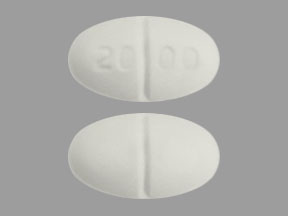Penicillamine Interactions
There are 123 drugs known to interact with penicillamine, along with 5 disease interactions, and 2 alcohol/food interactions. Of the total drug interactions, 30 are major, and 93 are moderate.
- View all 123 medications that may interact with penicillamine
- View penicillamine alcohol/food interactions (2)
- View penicillamine disease interactions (5)
Most frequently checked interactions
View interaction reports for penicillamine and the medicines listed below.
- Acetylsalicylic Acid (aspirin)
- Amoxil (amoxicillin)
- Baricon (barium sulfate)
- Co-trimoxazole (sulfamethoxazole / trimethoprim)
- Dexamethasone Intensol (dexamethasone)
- Dextran 40 (dextran, low molecular weight)
- Dextran 70 6% in 0.9% Sodium Chloride (dextran, high molecular weight)
- Dextrose (glucose)
- Epogen (epoetin alfa)
- Ginkgo Biloba (ginkgo)
- GlipiZIDE XL (glipizide)
- Glycerol (glycerin)
- Heparin Sodium (heparin)
- Iodides (sodium iodide)
- L-Arginine (arginine)
- Morphine Sulfate IR (morphine)
- Paracetamol (acetaminophen)
- Penicillin G Procaine (procaine penicillin)
- Penicillin VK (penicillin v potassium)
- Retinol (vitamin a topical)
- Saccharomyces Boulardii+MOS (saccharomyces boulardii lyo)
- Valproate Sodium (valproic acid)
- Vitamin A, D (multivitamin)
- Vitamin B Complex 100 (multivitamin)
- Vitamin B1 (thiamine)
- Vitamin B12 (cyanocobalamin)
- Vitamin B6 (pyridoxine)
- Vitamin D3 (cholecalciferol)
- Vitamin K (phytonadione)
- Zinc (zinc sulfate)
Penicillamine alcohol/food interactions
There are 2 alcohol/food interactions with penicillamine.
Penicillamine disease interactions
There are 5 disease interactions with penicillamine which include:
More about penicillamine
- penicillamine consumer information
- Compare alternatives
- Pricing & coupons
- Reviews (2)
- Drug images
- Side effects
- Dosage information
- During pregnancy
- Drug class: antirheumatics
- Breastfeeding
- En español
Related treatment guides
Drug Interaction Classification
| Highly clinically significant. Avoid combinations; the risk of the interaction outweighs the benefit. | |
| Moderately clinically significant. Usually avoid combinations; use it only under special circumstances. | |
| Minimally clinically significant. Minimize risk; assess risk and consider an alternative drug, take steps to circumvent the interaction risk and/or institute a monitoring plan. | |
| No interaction information available. |
Further information
Always consult your healthcare provider to ensure the information displayed on this page applies to your personal circumstances.


